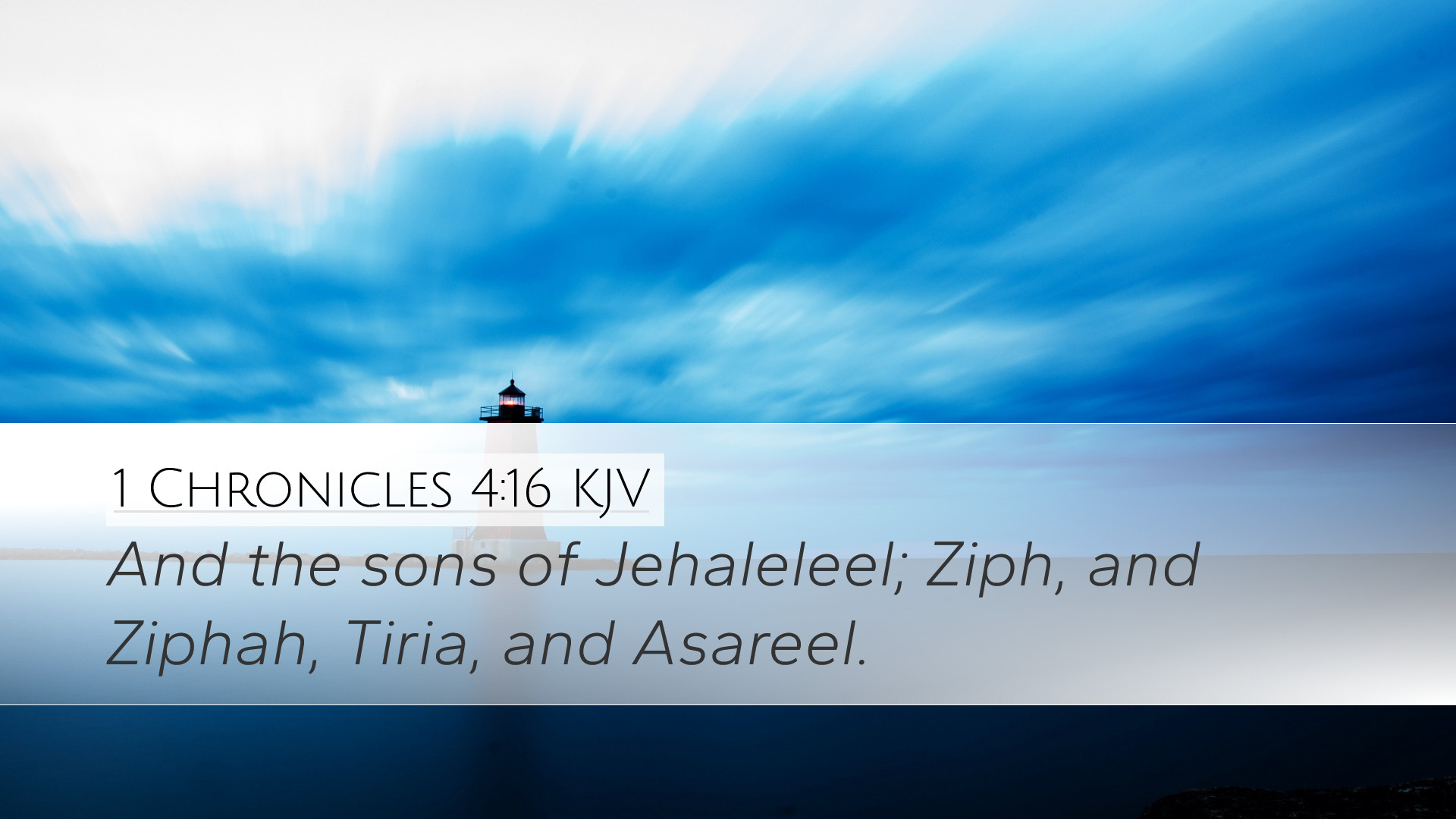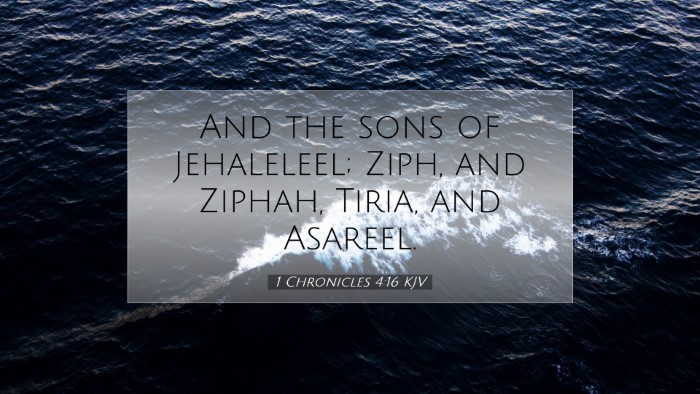Bible Commentary on 1 Chronicles 4:16
1 Chronicles 4:16 reads: "And the sons of Jehallelel: Ziph, and Ziphah, Tiria, and Asarel." This verse is part of the genealogical record found in the Book of Chronicles. It serves to trace the lineage and heritage of the people of Israel, specifically focusing on the family of Jehallelel.
Genealogical Significance
Genealogies in the Bible are more than mere lists of names; they serve critical theological and historical purposes:
- Identity and Heritage: Each name listed in genealogies helps establish the identity of Israelite tribes and families, showcasing their divine heritage and God's covenant with them.
- Messianic Lineage: Important figures in the Old Testament, including David, and ultimately Jesus Christ, trace their lineage through these genealogies, underscoring God's plan for salvation.
- Cultural Memory: They reflect the cultural memory and significance of each tribe's history and its connection to the broader narrative of God's people.
Commentary Insights
Matthew Henry
Matthew Henry notes that the listing of Jehallelel's descendants is a reminder of the divine order and purpose in God's choice of families among the Israelites. He emphasizes that every person, regardless of their prominence or obscurity, plays a role in God's grand narrative. Furthermore, names carry weight in terms of their meaning, and understanding these names can unlock insights into the character and purpose of these descendants.
Albert Barnes
Albert Barnes highlights that the inclusion of the sons of Jehallelel illustrates the careful preservation of Israel's genealogy. He asserts that such records serve to affirm the faithfulness of God in keeping His promises to the patriarchs. Despite the fragmentary nature of some genealogical records, Barnes argues that they are critical in ensuring that God's people understand their origins, significance, and duty in relation to His covenant.
Adam Clarke
Adam Clarke provides additional insights by pondering the practical implications of the genealogy for contemporary believers. He posits that knowing one’s spiritual heritage instills a sense of identity and belonging within the body of Christ. Clarke suggests that modern believers should seek to understand their place within the spiritual lineage of the Church, recognizing that they are part of a much larger narrative of faith that transcends time and culture.
Theological Reflections
The genealogy in 1 Chronicles 4:16 prompts several theological reflections:
- God’s Sovereignty: The meticulous recording of genealogy reflects God's sovereign hand in choosing and preserving a people for Himself throughout history.
- Continuity of God’s Promise: The fact that these names are recorded, linked to larger historical events and God's promises, emphasizes the continuity of God’s covenant throughout generations.
- Community and Identity: The passage serves as a reminder of the importance of community and the roles each member has within the body of Christ today, calling individuals to understand and actively participate in God’s work through the church.
Practical Applications
For pastors, students, theologians, and Bible scholars, the exploration of biblical genealogies can yield several practical applications:
- Encouragement in Obscurity: Individuals may feel insignificant in the grand narrative of God's work, yet each life—like the individuals listed in this genealogy—has value and purpose in God’s eyes.
- Understanding Identity in Christ: It is essential for modern Christians to reflect on their spiritual heritage, considering how their individual journeys contribute to the broader story of faith.
- Goal of the Church: The church today is called to maintain the legacy of faith and stewardship of the Gospel, much like the generations preceding them recorded their family lines in faithfulness to God.
Conclusion
The exploration of 1 Chronicles 4:16 offers rich insights into the importance of genealogy within the biblical narrative, showing how each individual contributes to the collective story of God's people. As believers study these genealogies, they are encouraged to see both their place in the grand narrative of salvation history and the significance of their community and identity in Christ.


